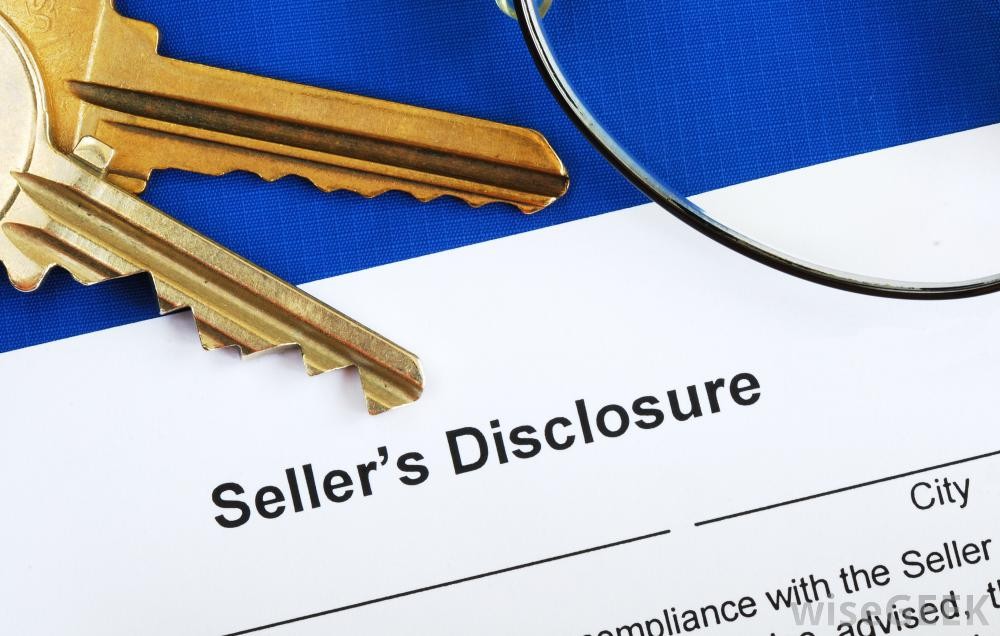Disclosing Hidden House Defects
Post on: 1 Июль, 2015 No Comment

Talk to a Local Residential Real Estate — Buy / Sell Attorney
In most states, it’s illegal for a home seller to knowingly conceal major defects from buyers, and most have mandatory property disclosure laws covering major home components, systems and conditions. Check out the law in your state.
Burdening Sellers or Protecting Buyers?
If you’re a seller, you may view disclosure as a burden. Why do disclosure laws protect the buyer? Disclosure laws can protect both sides. If there’s a problem with your home, the buyer could try to sue you after closing. Your seller’s disclosure form could help you avoid a lawsuit, showing who knew what and when about the home’s condition. If a buyer knows about a problem and goes ahead with the deal, you’re not liable for future problems.
Understand disclosure doesn’t mean you’re giving a buyer guarantees about your home. You must give truthful information about defects you know or should have known about.
It can be good idea to have your home inspected prior to putting it on the market and make needed repairs. This helps avoid negotiation problems once a buyer makes an offer on your house. Repairs and improvements may even mean you can up your listing price.
What’s in a Disclosure?
Most states’ laws have a laundry list of home components and conditions a disclosure has to cover and offer standard disclosure forms. Your real estate lawyer, broker or sales agent can give you the form, or you can usually find it online. Typical forms are set up as checklists, with space for details on defects.
It’s best to disclose any defects that are material or important enough to affect the decision to buy your house. Disclosure laws and forms cover these major home systems and conditions:
- Plumbing and sewage issues
- Water leakage of any type, including in basements
- Termites or other insect infestations
- Roof defects
- Heating or air conditioning system issues
- Property drainage problems
- Foundation instabilities or cracks
- Problems with title to the property
- Neighbor issues that aren’t obvious
- Lead paint (under the federal Lead-Based Paint Hazard Reduction Act)
In some states, you may have to disclose if certain violent crimes took place in your home, or environmental issues, such as radon gas.
Completing Your Disclosure
Disclosure forms are usually in plain English and easy to fill out. Even so, read the form carefully, and give honest and accurate answers. Don’t be surprised if your real estate agent doesn’t offer much help if you have a question. If you’re unsure about an item, your real estate lawyer can help you interpret the question and give an appropriate answer.
Consequences When Sellers Don’t Disclose
A seller who doesn’t disclose known defects can be sued by the buyer after the defect is discovered. Most sellers don’t want to look back after closing.
Without proper disclosure, you may be faced with a buyer’s demand for repairs and damages due to the defect. If you can’t reach a settlement, the buyer may file a lawsuit.
If a court decides in favor of the buyer you may be responsible for:
- Repairs and other damages resulting from the undisclosed defect
- The buyer’s attorney’s fees and costs of the lawsuit
- Taking back the house if the court invalidates or rescinds the sale
- Punitive damages to punish your failure to disclose defects if it amounted to fraud
Don’t make your home sale any more challenging or work than need be. Your accurate and honest disclosure is worth it.
Questions for Your Attorney
- Do I have to disclose a past problem with my house if it’s been repaired?
- Do disclosure laws cover the health of those who lived in my home, say if someone was HIV positive or had AIDS?
- Can you help me complete the seller’s disclosure form?














